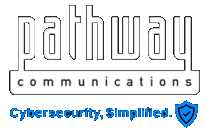In today’s digital age, cyber threats are becoming more sophisticated and frequent, making it essential for businesses to be proactive and stay ahead of potential attacks. Implementing and adhering to cybersecurity best practices can help organization safeguard the integrity, confidentiality, and availability of sensitive data and resources. By creating a culture of cybersecurity awareness and regularly training employees, organizations can mitigate the impact of cyberattacks and increase their overall resilience to cyber threats.
By diligently following cybersecurity practices, a business can:


